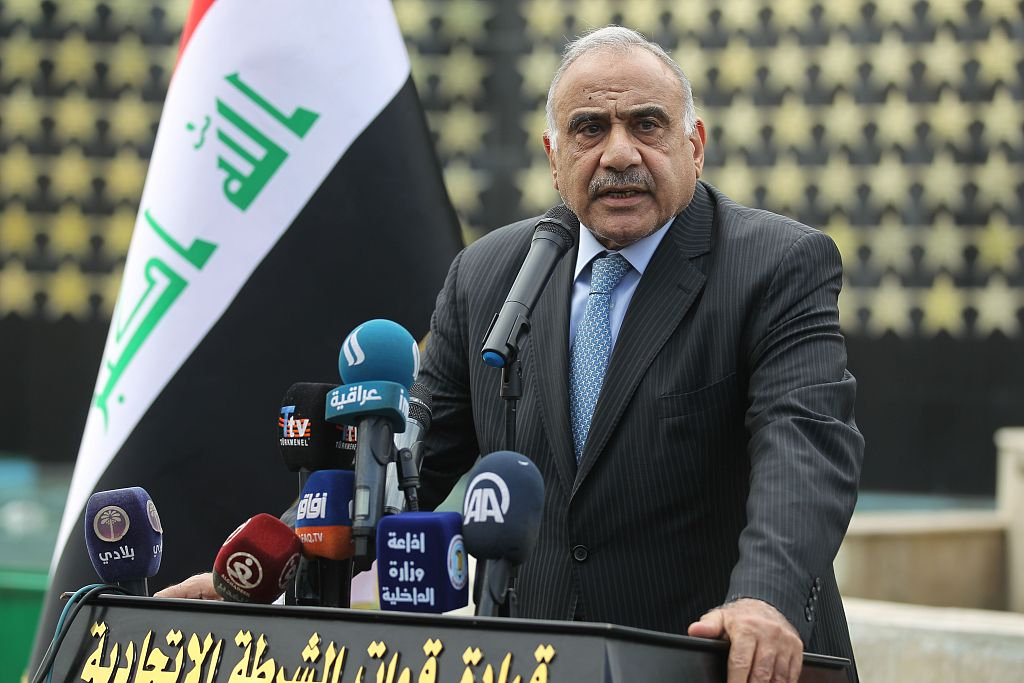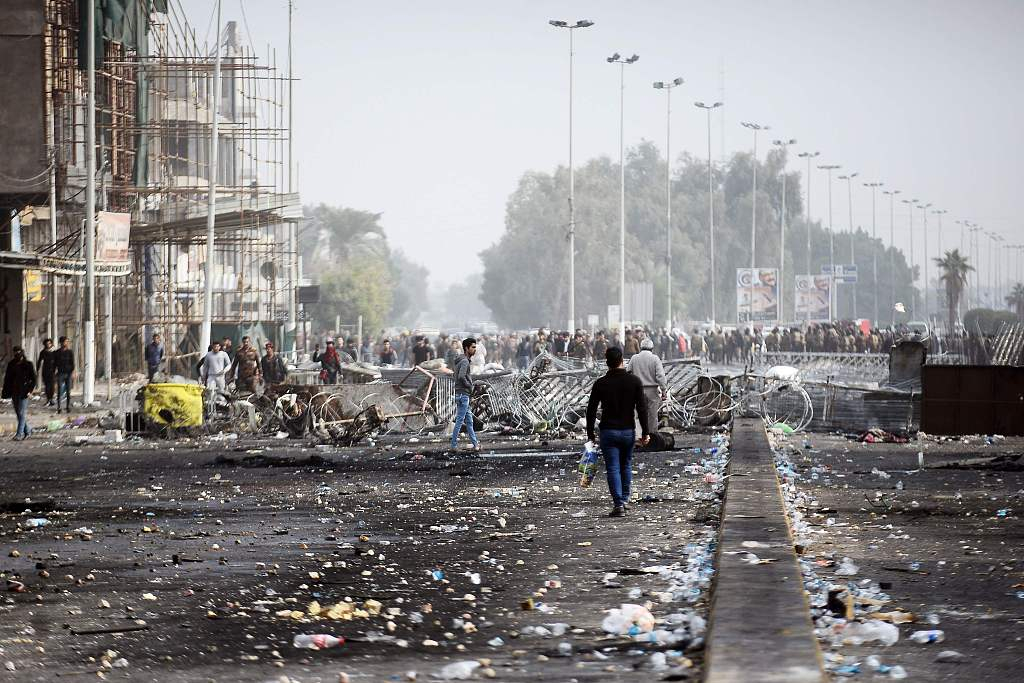Iraq's rival parties were negotiating the contours of a new government on Monday, after the previous cabinet was brought down by a two-month protest movement insisting on even more deep-rooted change.
After just over a year in power, Prime Minister Adel Abdel Mahdi formally resigned Sunday after a dramatic intervention by top Shiite cleric Grand Ayatollah Ali Sistani.
That followed a wave of violence that pushed the protest toll to over 420 dead.
Iraqi parliament on Sunday formally tasked the president with naming a new candidate, but the country's competing factions typically engage in drawn-out discussions before any official decisions are made.
Talks on a new prime minister began before Abdel Mahdi resigned, a senior political source and a government official told reporters.
"The meetings are ongoing now," the political source added.

Iraq's Prime Minister Adel Abdel Mahdi speaks during a funeral ceremony in Baghdad, October 23, 2019. /VCG Photo
Iraq's Prime Minister Adel Abdel Mahdi speaks during a funeral ceremony in Baghdad, October 23, 2019. /VCG Photo
Such discussions produced Abdel Mahdi as a candidate in 2018, but consensus will be harder this time around.
The candidate would also have to be acceptable to Iraq's two main allies, arch-rivals Washington and Tehran.
Tehran and Washington
Tehran's pointman on Iraq, Qassem Soleimani, who heads the Iranian Revolutionary Guard Corps' foreign operations arm, arrived in Iraq last week for talks, official sources said.
The United States said that Soleimani's presence showed that Iran was again "interfering" in Iraq, accusing Tehran of having "exploited" the neighboring country.
David Schenker, the top US diplomat for the Middle East, also called the weekend killing of 40 protesters in the flashpoint city of Nasiriyah "shocking and abhorrent." "We call on the government of Iraq to investigate and hold accountable those who attempt to brutally silence peaceful protesters," he told reporters in Washington.
Protesters hit the streets in October in Iraq's capital and Shiite-majority south to denounce the ruling system as corrupt, inept and under the sway of foreign powers.
Despite the oil wealth of OPEC's second-biggest crude producer, the World Bank says one in five Iraqis lives in poverty and youth unemployment stands at one quarter.
More deep-rooted change

A barrier made of scrap metal separates protesters from Iraqi security forces in the southern Iraqi Shiite holy city of Najaf, December 1, 2019. /VCG Photo
A barrier made of scrap metal separates protesters from Iraqi security forces in the southern Iraqi Shiite holy city of Najaf, December 1, 2019. /VCG Photo
Demonstrators say such systemic problems require more deep-rooted solutions than Abdel Mahdi's resignation.
The government and political sources said parties were considering a "transitional" cabinet to oversee electoral reform before an early parliamentary vote.
"This process will take no less than six months," the official said. A new voting law has been a key demand of protesters as well as Sistani, and is now a centerpiece of the government's proposed reforms.
On Monday, Parliament Speaker Mohammed al-Halbusi held meetings with the main legislative blocs, the United Nations and parliament's legal committee to discuss a draft law, with more talks expected on Tuesday.
President Barham Saleh met the UN's top representative in Iraq, Jeanine Hennis-Plasschaert, as well as the European Union's ambassador to the country.
(Cover: Iraqi people walk past the ashes of burnt tires in the southern Iraqi Shiite holy city of Najaf, December 1, 2019. /VCG Photo)
Source(s): AFP